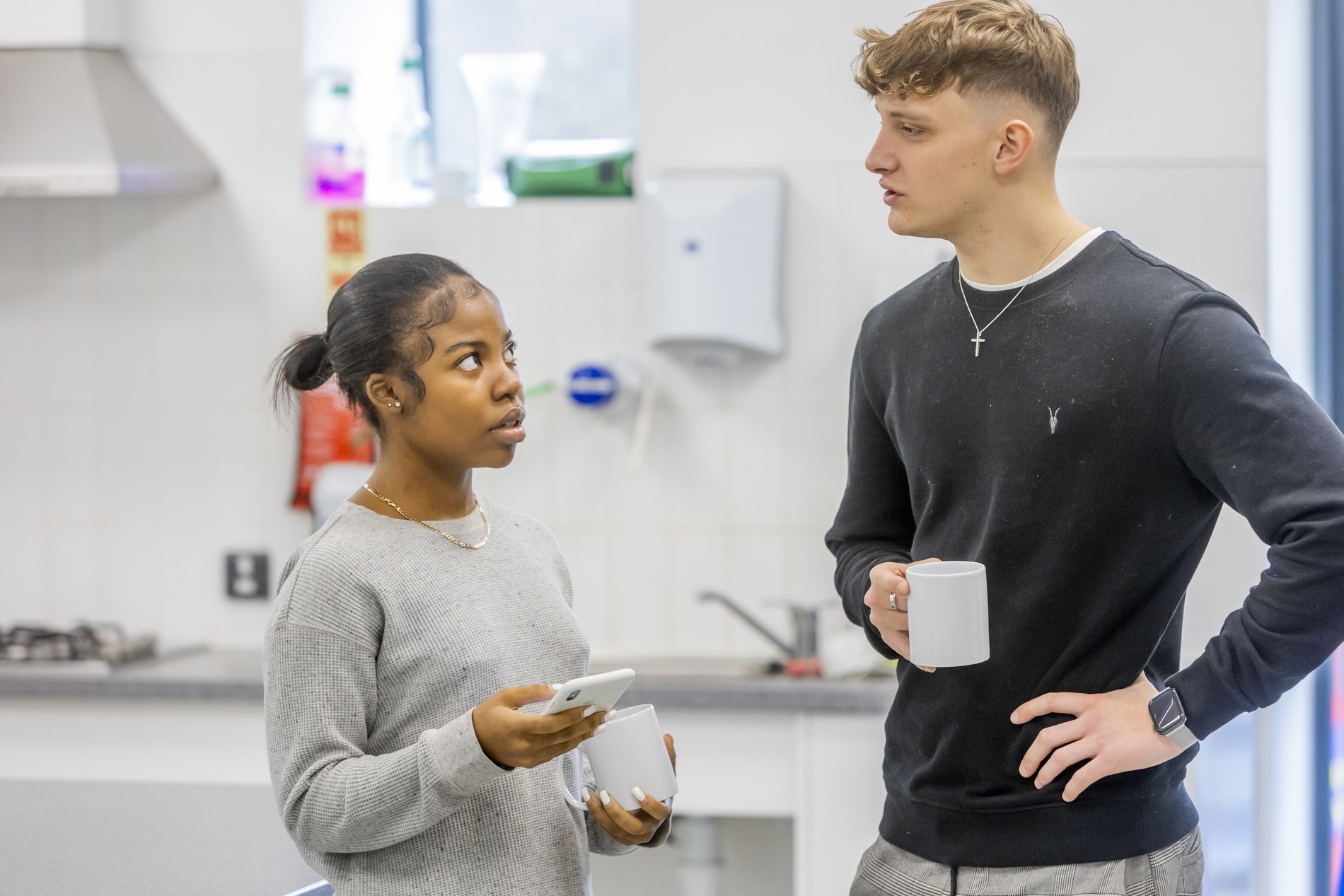Coping with an eating disorder at Christmas

Hey, I’m Molly, Fundraising Officer at The Mix and volunteer at First Steps ED, an eating disorder charity. I’m passionate about challenging stigmas around women’s bodies and amplifying the voices of young people struggling with eating disorders.
Food at Christmas
As we’ve been focusing on throughout this campaign, Christmas can be a really hard time. For anyone that’s struggled with negative body image, body dysmorphia or an ED, it can be especially challenging and scary.
Food undoubtedly plays a huge role in Christmas and winter celebrations. Whether that’s Christmas dinner itself, advent calendars, mince pies or additional sweets or chocolate around the house, food is central to the festivities. And as much as it is wonderful, it can feel very suffocating and exhausting for people struggling with their relationship with food.
Alongside this, you might have family members you aren’t particularly close to that comment on your weight, what you’re wearing, or even your makeup. They might remark on what you’re eating, or how much of it you are eating.
Tips for coping with an eating disorder over Christmas
I want you to remember that you can get through this and that I’m proud of you for making it to this point. For Christmas this year, try and focus on baby steps, and take every day as one little step at a time.
Instead of challenging yourself or your ED during this already intense time, let’s focus on surviving through it.
- If a family member or friend makes an unwanted remark on your body, try to ignore it by remembering that what they think is irrelevant to you and your recovery. You don’t need validation from anyone other than yourself. You and I know that it’s not cool to comment on someone’s body or weight – it’s infuriating that they don’t. Perhaps try and steer the conversation onto a different topic, ask them a question about their life, or just be honest and say that you don’t want to think about your body or food right now.
- Eat however much you feel comfortable eating, and if it makes you feel safer, try to just eat the foods that you know you can. If you feel able to discuss your feelings with a close family member, let them know that you’re struggling so they can be mindful of what you choose and choose not to eat.
- If you can’t confide in anyone around you, please don’t suffer in silence. There are support services available all around the Christmas period who want to help you – please reach out and speak to someone.
- Remember that you deserve food and you are worthy of eating. You do not have to earn your food through exercise or any other means of movement. You always deserve to eat, and this applies to every single day, not just Christmas. Write this on a sticky note, or on your phone, so you don’t forget it.
- If you feel like you’re losing control, or are becoming extremely anxious, try and distract yourself. Take a walk, go to your bedroom and listen to some music, read your favourite book or put on some TV. Or surround yourself with people and play a game. We have a distraction toolkit on our Instagram to help you with this.
You can get through this
Most importantly, tomorrow is a new day and you’ve done SO well to get through this one! Be gentle and kind to yourself as each day goes by and remember that your body will always fluctuate and go through many changes in life, and it’s beautiful at every single point. Our bodies give us power, give us energy, and make us who we are – they are our home.
You are also not alone in this – before my eating disorder recovery, Christmas always caused me a lot of anxiety and worry about food, my weight and whether people were judging me for what I was eating. Now, I look forward to Christmas and eating what I want. I try to eat intuitively and honour my bodies cravings, but also its boundaries. I know now that however I’m feeling matters, and that my feelings are always valid.
Christmas is just another day in the year, and you can get through it as you did yesterday, and the day before. Every-day is an achievement worth being proud of – you’ve got this.
Additional resources and support:
Read our guide to coping with an eating disorder during lockdown.
Read Rachel’s piece about recovering from an eating disorder.
Please contact Beat’s helpline.
View First Steps ED’s resources.
Instagram icons and useful resources to follow:
Next Steps
- Beat help people overcome eating disorders through helplines, online support and self-help groups. Call 0808 801 0677 or, if you're under 18, call their Youthline on 0808 801 0711.
- Eating Disorders Support has a telephone helpline with 24/7 answer message service and email support for people with eating disorders and anyone concerned about them. Call on 01494 793223.
- If you're under 25 and would like free confidential telephone counselling from The Mix to help you figure things out complete this form and we'll call you to arrange your first session.
- Chat about this subject on our Discussion Boards.
By Molly Gorman
Updated on 21-Dec-2020
Sorry, comments closed
No featured article










